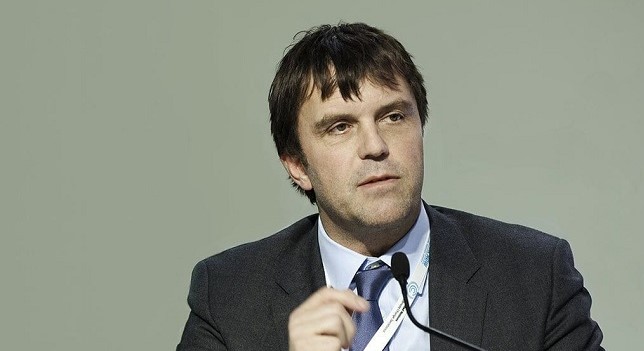To mark the 2020 World Environment Day, an alliance of investors, activists, cities and corporates is gathering virtually on Friday, June 5 for the launch of Race to Zero, the global campaign to mobilise leadership and support for a healthy, resilient, zero carbon recovery which creates well-paying jobs, unlocks inclusive, sustainable growth and prevents future threats.

The campaign – under the stewardship of Nigel Topping and Gonzalo Muñoz, the UN High Level Climate Champions for the UK and Chile – will rally “real economy” leaders to join what appears to be the largest ever coalition of businesses, investors, cities and regions committed to the same overarching goal: achieving net zero emissions by 2050 at the very latest, in line with the scientific consensus on limiting warming to 1.5 degrees Celsius.
Already covering 23% CO2 emissions and 53% of GDP and sounding the drumbeat to COP26, the campaign aims to drive a new growth and innovation agenda in support of a healthier, more inclusive and resilient economy. To maintain quality control, Oxford University has set out minimum criteria for robust Race to Zero targets, published on Friday.
Prioritising climate change in the economic recovery has the support of over two-thirds of people worldwide. Moreover, low carbon stimulus can spur economic recovery and job creation as effectively as – or better than – environmentally neutral or harmful programmes, as new research by McKinsey shows. The magnitude of stimulus packages, in the region of £10-20 trillion, will shape the economy for the next decade.
The campaign is also working to define the most effective pathways to zero emission for key sectors such as energy, transport, industry, food, retail and finance – in a bid to mass mobilise the number of companies and cities committed to net zero by at least 2050 and reach key economic tipping points faster. The new pathways will drive coordinated action by investors, businesses, policymakers, and NGOs.
Big ambitions for COP26 in 2021
Days after the new date for COP26 was confirmed for November 1 to 12, 2021, Alok Sharma, UK Secretary of State for Business, Energy and Industrial Strategy and COP26 President, said: “The way we rebuild our economies post Covid-19 will have a profound impact on our planet. We have the opportunity to build back better by investing in a clean, resilient recovery.
“The Race to Zero initiative will play an important part in encouraging businesses, other organisations and regional governments to increase their ambition and take action against climate change.”
COP25 President, Carolina Schmidt, said: “In September 2019, we launched the Climate Ambition Alliance to commit states and non-state actors to carbon neutrality by 2050 as science asks us, in order to achieve the goal of 1.5°C.
“Today we applaud the Race To Zero campaign, which was born from this Alliance, and which invites non-state actors to continue joining to take on this enormous challenge we have as humanity. Despite the health crisis, climate action must continue at all levels.”
UN Climate Change Executive Secretary, Patricia Espinosa, added: “Complementing the urgent need for nations to submit NDCs this year, Race to Zero is not a campaign of the future, but a campaign of today. That’s why all members are demonstrating how they’re already in the race to zero, by publishing immediate plans by COP26 and setting interim targets in 2025 and 2030.”
Climate central to a healthier recovery
With health concerns at an all time high, cities including Freetown, Bogota, and Phoenix today announce new commitments to tackle air pollution and become zero carbon by 2050. In Japan alone, local governments setting net zero targets cover 64 million people — over half Japan’s population.
Dr Maria Neira, Director of Environment, Climate Change and Health at the World Health Organisation, will call on governments to put health and climate action at the centre of recovery plans.
“Like never before, the world has gathered around one goal: the race to zero deaths from COVID-19. A healthy recovery from this pandemic means we need to continue and expand this race to zero deaths from climate change and environmental pollution, a race to zero people pushed into poverty because of health costs, to zero people breathing polluted air. If we want to recover from COVID-19, we all need to embark on a Race to Zero emissions,” Neira said.
Net zero lens for investment and finance
Reorienting investment and finance for net zero will be a major focus for the UK COP Presidency and the Race to Zero. As UN Special Envoy for Climate & Finance and advisor to the UK Government on COP26, Mark Carney said: “The transition to net zero is creating the greatest commercial opportunity of our time. Net zero targets must be underpinned by transition plans so that investors can assess which companies will seize the opportunities in the transition and which will cease to exist.
“The priority of the COP 26 Private Finance work is to support investors in: assessing the credibility of company transition plans; measuring how their own portfolios are aligned to net zero; and disclosing the alignment of investment portfolios.”
Businesses stepping-up ambition on zero carbon commitments
Of the nearly 1,000 businesses that have joined the Race to Zero, there are 237 companies that are already reaching the highest standard of corporate climate ambition as part of the growing Business Ambition for 1.5C campaign by targeting net zero emissions by 2050 to align their business with a 1.5°C limit. This includes companies in some of the hardest to abate sectors and those most impacted by COVID-19, such as aviation, shipping, rail and power generation leader Rolls-Royce, retailer Inditex and food & drink company Diageo.
